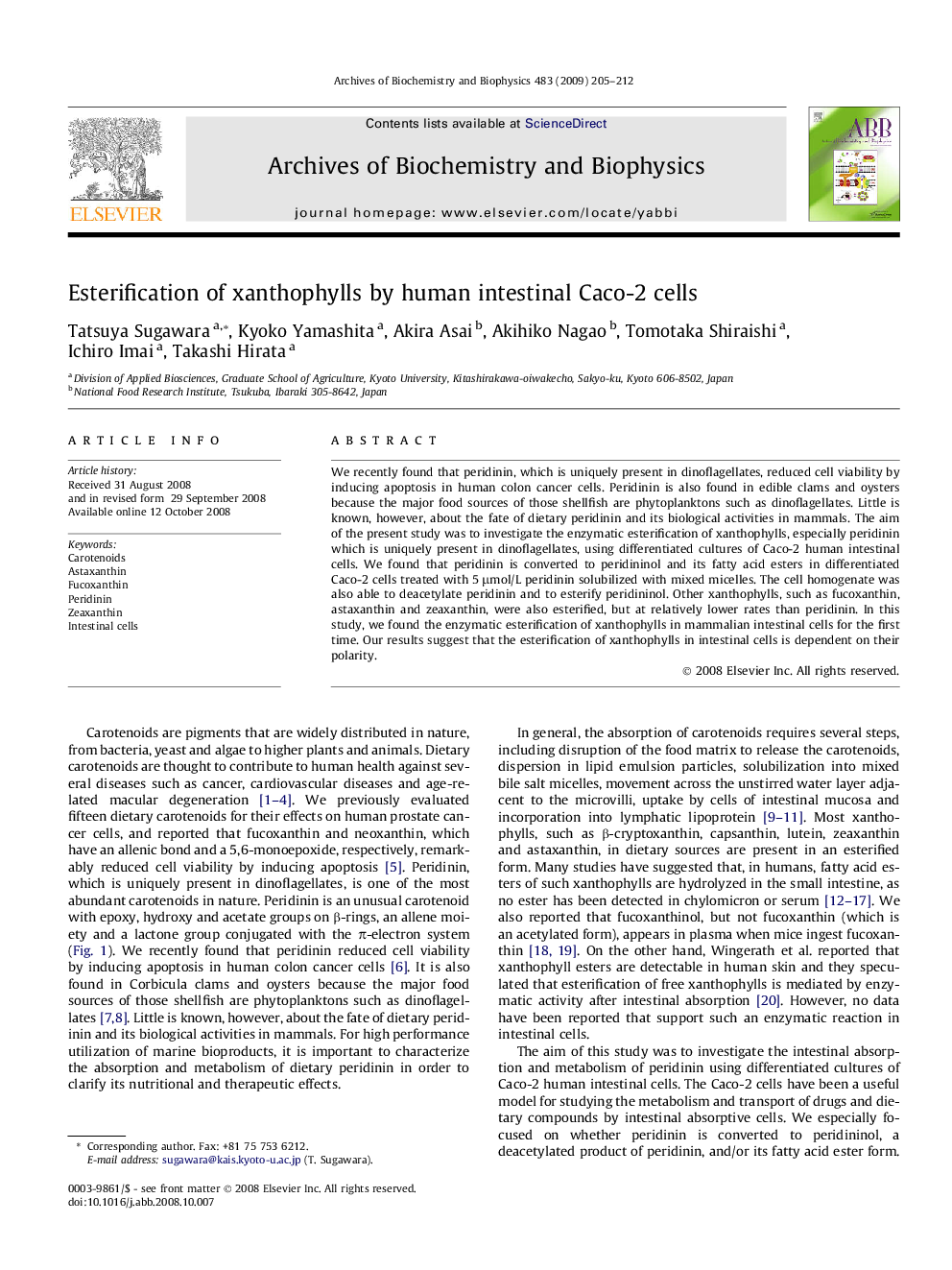| Article ID | Journal | Published Year | Pages | File Type |
|---|---|---|---|---|
| 1926542 | Archives of Biochemistry and Biophysics | 2009 | 8 Pages |
We recently found that peridinin, which is uniquely present in dinoflagellates, reduced cell viability by inducing apoptosis in human colon cancer cells. Peridinin is also found in edible clams and oysters because the major food sources of those shellfish are phytoplanktons such as dinoflagellates. Little is known, however, about the fate of dietary peridinin and its biological activities in mammals. The aim of the present study was to investigate the enzymatic esterification of xanthophylls, especially peridinin which is uniquely present in dinoflagellates, using differentiated cultures of Caco-2 human intestinal cells. We found that peridinin is converted to peridininol and its fatty acid esters in differentiated Caco-2 cells treated with 5 μmol/L peridinin solubilized with mixed micelles. The cell homogenate was also able to deacetylate peridinin and to esterify peridininol. Other xanthophylls, such as fucoxanthin, astaxanthin and zeaxanthin, were also esterified, but at relatively lower rates than peridinin. In this study, we found the enzymatic esterification of xanthophylls in mammalian intestinal cells for the first time. Our results suggest that the esterification of xanthophylls in intestinal cells is dependent on their polarity.
